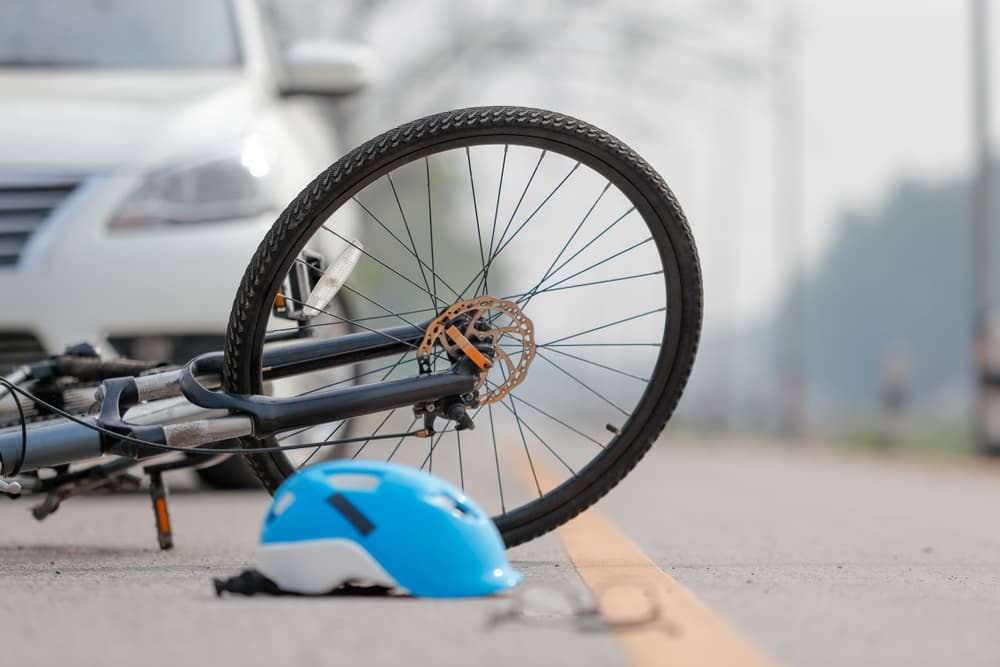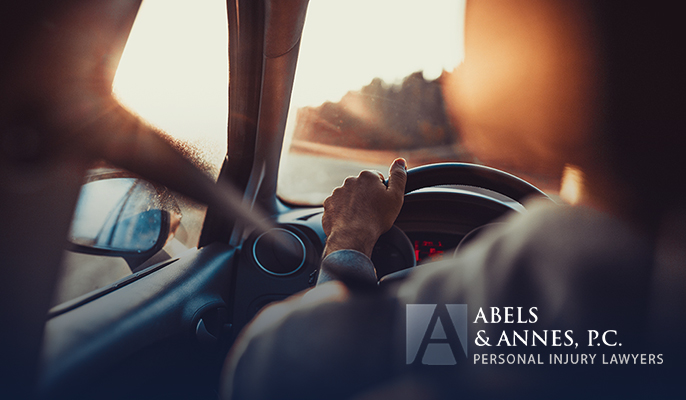Bicycle Accidents: Helmets Don’t Always Prevent Head Injuries
Anyone, regardless of age, should always wear a helmet when riding a bicycle. Bicycle helmets can reduce the risk of serious head injury by
nearly 70 percent, and they offer the most basic precaution riders can take to protect their safety in the event of an accident. However, many bicyclists still fail to use helmets, and even those who do cannot entirely eliminate the risk of head injury. Worse yet, some cyclists have purchased
counterfeit helmets on eBay and other online sellers that don’t come close to offering the same protections as real ones, so make sure you buy your helmet from a trustworthy source.
Head Injury Symptoms
The extent of
head injuries after an accident may not always clearly present themselves. It can take hours or even days for the symptoms of a victim’s head injury to fully manifest. Immediately go to a doctor who can assess the risk factors and look for early warning signs of a head injury.
Anytime a victim loses consciousness at the scene of an accident, even if it’s only for a few seconds, the victim absolutely must get medical attention. Bicycle accident victims, who are especially vulnerable to head injuries even if they wore helmets, should
look for:
- Mild confusion. Victims may feel disoriented or find themselves struggling to keep up with what is happening around them. Symptoms of mild confusion may linger for days or weeks following a minor head injury. If confusion increases with time, seek further medical attention.
- Nausea or ringing in the ears. Following an accident, it is normal to experience physical symptoms of injuries. In the case of brain injuries, victims may feel nauseated or disinterested in food, or they may hear a mild ringing in their ears.
- Difficulty focusing eyes. If victims have trouble bringing the world around them into focus, experience tunnel vision, or observe changes in their vision, they may have a more serious injury than initially thought. Get medical attention as soon as possible.
- Headache. A mild headache is normal following a head injury. A headache that persists or seems to worsen can signal a more serious head injury. Victims may have a headache that seems to radiate from all over their heads, a localized headache, or stabbing pains that move through the head abruptly.
- Memory loss. A victim may not remember what occurred during an accident. Perhaps they are struggling to keep up with normal tasks following their accidents, like recalling regular tasks from a to-do list, or knowing why they have walked into a room. Other memory loss symptoms include misplaced items, and items found in unusual places. If memory loss appears after an accident, or worsens after a medical evaluation, seek additional medical attention.
- Balance, coordination, or muscle control issues. A head injury might cause victims to struggle with balance, normal tasks due to poor coordination, or full muscle control. They should get medical attention to determine the extent of their injuries.
- Leaking clear fluid. A victim who leaks clear fluid from the ears or nose should seek immediate medical attention.
- Sensitivity. Following a head injury, any or all of the victim’s senses may grow more acute than usual. They may feel more sensitive to loud sounds, certain tones, smells, or light. Victims who experience extreme sensitivity may need additional medical attention.
What to Do if You’re in a Bicycle Accident
If you were in a bicycle accident, even if you were wearing your helmet, ensure your health and wellbeing, and preserve any legal claims to compensation that you may have, by taking the following steps.
Assess your physical condition. Do you have any broken bones or damaged limbs that prevent you from moving freely? Are you limping or experiencing pain in any area of your body? If you are injured, do nothing that could potentially worsen the condition. Keep still and summon help as soon as possible.
Collect evidence at the scene. If you’re physically able to maneuver around the accident scene, collect evidence for any future insurance claims or potential litigation. First, record the name and insurance information of the party who appeared to have caused the accident. Record names and contact information for any accident witnesses, and take pictures or video of the conditions, including:
- The vehicle(s) in the accident
- The accident scene, including any contributing factors, such as physically created blind spots, poorly maintained roads, or hazards
- Any of your own visible injuries
- Property damage, including the condition of your bicycle
Summon help. You may need the help of the police to assess the accident scene, and you will also need to file a police report that documents the accident. If you’re hurt, or even if you’re unsure whether you are, you will also need medical help. Paramedics may assess your condition at the scene, or will take you to a nearby medical facility for additional care.
Seek medical attention. Even if you don’t think you were seriously injured, if you have any symptoms of a head injury, get medical attention. A doctor will assess you, and may order additional tests. The doctor will also provide specific information about what symptoms to look out for, and how long your recovery may take. Keep all records of your medical treatment as evidence of damages for any future claims.
Contact a lawyer. If you were in a bicycle accident, especially one involving a head injury, talk to a lawyer about your rights. An experienced personal injury lawyer can review your case and let you know if you are entitled to compensation. A lawyer who agrees to take your case can work directly with insurance companies on your behalf, saving you the burden of navigating the complicated claims process and any necessary litigation.
Injured in a Bicycle Accident? Call Abels & Annes, PC, for Help Today
If you were in a bicycle accident, even if you wore a helmet, speak to a lawyer as soon as possible. Contact the experienced lawyers at Abels & Annes, PC, for a free consultation at (312) 924-7575 or
online, and learn if we may help you.
David Abels
Partner
David Abels has carved a niche for himself in the personal injury law sector, dedicating a substantial part of his career since 1997 to representing victims of various accidents. With a law practice that spans over two decades, his expertise has been consistently recognized within the legal community.
Author's Bio



